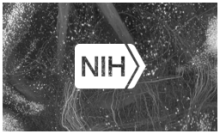
Does your research involve bioethics? If so, you may want to consider the new bioethics funding supplements. These administrative supplements can support BRAIN-funded scientists conducting neuroethics research or those who seek to integrate bioethics into their projects. Applications are due on March 20, 2020.
Ethical considerations are fundamental to responsibly conducting research and to translating technological advancements into the clinic. Over recent years, BRAIN-funded research has rapidly accelerated the development and use of novel tools in neuroscience, raising important neuroethical questions. Mirroring NIH-wide efforts in maintaining ethical integrity in biomedical research, BRAIN Initiative leaders have worked diligently to ensure that BRAIN-funded research is conducted ethically by proactively assessing and managing neuroethical concerns, as described in a recent publication in the Journal of Neuroscience.
Whether funded by the BRAIN Initiative or not, scientific progress can challenge existing ethical frameworks. Last week, the NIH Office of Science Policy announced the availability of new funding for administrative supplements to support research on bioethical issues that may inform future policy directions. Proposals can supplement awards focused solely on bioethics, or alternatively, funds can be used to add a component related to bioethics to an award that is not directly addressing ethics.
What do these supplements mean for BRAIN-funded scientists? Most ethical issues span all fields of biomedical research, including neuroscience. New and emerging technologies such as gene editing and brain organoid research pose interesting, new ethical questions about safety and informed consent. Brain implants and modulation – including via human neural devices – raise neuroethical questions about risk, informed consent, and posttrial responsibilities. Clinical and non-clinical data sharing raises considerations about privacy.
In addition to these research areas, funding supplements can support the historical analyses of bioethical issues (including neuroethics) and empirical projects. For a comprehensive list of relevant research topics, please see the full Notice of Special Interest here. Moreover, applications should fall within the mission of the appropriate NIH Institute or Center, as emphasized in the notice. More information can be found on the Notice of Special Interest webpage, and application details can be found under PA-18-591.
Interested in applying for a bioethics funding supplement? Applications are due on March 20, 2020.
